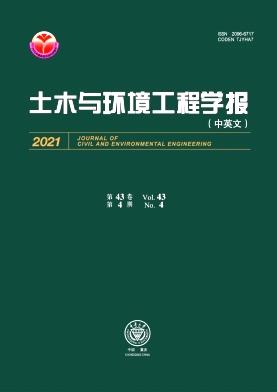Effect of the Operation Mode and Distance on the Electromagnetic Radiation Emitted by Mobile Phone Devices in Greece: A Pilot Study
Q2 Engineering
Tumu yu Huanjing Gongcheng Xuebao/Journal of Civil and Environmental Engineering
Pub Date : 2018-01-01
DOI:10.4172/2165-784X.1000300
引用次数: 0
Abstract
The electromagnetic radiation (EMR) emitted by mobile phone devices (n=52) has been monitored as a function of the operation mode and the distance from the device. Measurements (electric field, V/m) were administered in the metropolitan area of Athens, Greece and involved a total of 52 mobile phone devices operating in the 1.5 GHZ-2.1 GHz frequency range. Five distinct operation modes of the device (“long term inactivity”, “ringing/call effort”, “usage”, “right after the end of the call”, “short term inactivity”) and a total of two distances from the device (0 m and 1 m) were employed. Depending on the intensity of the individual peaks observed in the experimental spectra at 0 m, the mobile devices were shown to cluster into three subgroups as follows: Subgroup 1 (n1=24, peak intensities>1 V/m), Subgroup 2 (n2=9, peak intensities in the range of 0.1 V/m - 1 V/m), Subgroup 3 (n3=19, peak intensities<0.1 V/m). Statistical analysis via repeated-measures analysis of variance (RM-ANOVA) provided evidence for a statistically significant effect of the operation mode on the emitted EMR by the mobile device. The effect was more prominent at the shortest distance (0 m) and for the devices of one specific subgroup (Subgroup 1). The transition between operation modes which shows the largest effect (increase) in the emitted EMR is the one from “long term inactivity” to “Ringing/Call effort” irrespective of device subgroup. Examination of the effect of the distance on the emitted EMR resulted to the following findings: At the longer distance employed (1 m), the devices belonging to Subgroups 2 and 3 continue to exhibit mean EMR intensity similar to the one at 0 m under all operation modes. On the other hand, upon distance increase, the emitted EMR intensity of the devices belonging to Subgroup 1 displays a statistically significant decrease in all operation modes except the one of ‘long term inactivity”.操作方式和距离对希腊移动电话设备电磁辐射的影响:一项试点研究
监测移动电话设备(n=52)的电磁辐射(EMR)与操作方式及与设备的距离的关系。测量(电场,V/m)在希腊雅典的大都市区进行,涉及在1.5 GHz -2.1 GHz频率范围内工作的52个移动电话设备。设备的五种不同的操作模式(“长期不活动”、“响铃/呼叫努力”、“使用”、“通话结束后立即”、“短期不活动”)和与设备的两种距离(0米和1米)被采用。根据实验光谱在0 m处观察到的单个峰的强度,移动器件被显示成三个亚组:亚组1 (n1=24,峰强度>1 V/m),亚组2 (n2=9,峰强度在0.1 V/m - 1 V/m范围内),亚组3 (n3=19,峰强度<0.1 V/m)。通过重复测量方差分析(RM-ANOVA)进行的统计分析提供了证据,证明操作模式对移动设备发出的EMR有统计学显著影响。在最短距离(0米)和一个特定子组(子组1)的设备上,这种影响更为突出。无论设备子组如何,显示最大影响(增加)的操作模式之间的转换是从“长期不活动”到“振铃/呼叫努力”。对距离对发射EMR的影响的检查得出以下结果:在使用的较长距离(1米),属于第2和3组的设备在所有操作模式下继续表现出与0米时相似的平均EMR强度。另一方面,随着距离的增加,除“长期不活动”外,子组1设备在所有操作模式下的EMR发射强度均有统计学意义上的显著降低。
本文章由计算机程序翻译,如有差异,请以英文原文为准。
求助全文
约1分钟内获得全文
求助全文
来源期刊

Tumu yu Huanjing Gongcheng Xuebao/Journal of Civil and Environmental Engineering
Engineering-Architecture
CiteScore
1.30
自引率
0.00%
发文量
5346
 求助内容:
求助内容: 应助结果提醒方式:
应助结果提醒方式:


